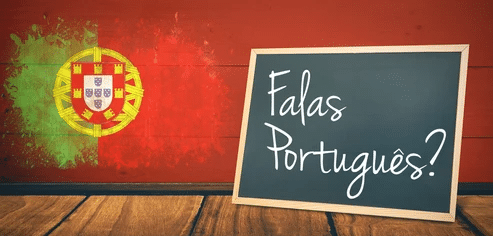The government of Luís Montenegro (Democratic Alliance) wants to make Portuguese an official language of the United Nations by 2030, while maintaining support for Ukraine against “Russian aggression” and for the two-state solution between Israel and Palestine.
In the chapter entitled “A global and humanist country” of the Program of the XXIV Constitutional Government, the executive states that it “firmly and ambitiously assumes the four essential axes” of Portuguese foreign policy: “active commitment to European construction, deepening and strengthening the Lusophone space, intensifying transatlantic cooperation and defending multilateralism”.
At the UN, the government pledged to “promote the candidacy of the Portuguese language as an official language of the UN by 2030” – a goal of Portuguese diplomacy and the other Portuguese-speaking countries, which is also defended within the Community of Portuguese-Speaking Countries (CPLP).
Regarding ongoing conflicts, the program states that Portugal, “within the framework of the European Union and NATO, will support Ukraine at the humanitarian, political, financial and military levels, in its defense against the aggression of the Russian Federation, in the reconstruction plans and efforts and in the ongoing EU enlargement process.”
The process of joining the EU, which also includes Moldova, the Western Balkans and Georgia, “should be preceded by a reform of the Union’s institutional and financial architecture to ensure the effectiveness of its action,” says the program on Foreign Policy, overseen by the Minister of State and Foreign Affairs, Paulo Rangel.
As for the war in the Middle East, “Portugal will fight for the adoption of the two-state solution, recognizing Israel’s right to legitimate defense against terrorism, demanding the release of all hostages and advocating strict respect for the rules of international humanitarian law, defending a ceasefire that provides humanitarian aid and the establishment of negotiations for a lasting peace, which will include the self-determination of the Palestinian people.”
The government has not explicitly committed itself to recognizing the Palestinian state, at a time when the head of the Spanish executive, Pedro Sánchez, is leading a movement within the 27 for this step – which he intends to discuss with the Portuguese prime minister next Monday in Madrid, on his first official visit abroad since taking office.
“To promote the candidacies of Portuguese people for positions in international organizations and to value and support their respective career progressions,” the document also states.
Regarding a possible candidacy by former Prime Minister António Costa for the presidency of the European Council, Minister Paulo Rangel said last week that the Portuguese government would not oppose the possibility of Costa occupying a position in the European institutions.
The Government Program of the Democratic Alliance (AD) was approved today, on the eve of two days of debate in parliament, on Thursday and Friday.
The Minister for the Presidency, António Leitão Amaro, said that the document is based on AD’s electoral program, but incorporates more than 60 measures that coincide with those of other parties.









